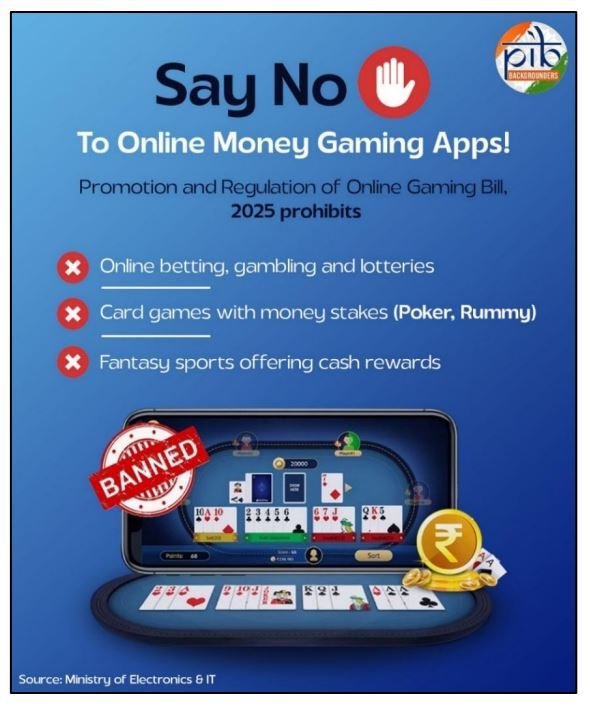What is colour prediction game Fraud?
Colour Prediction Games are largely considered illegal in most Indian states because they are viewed as gambling activities based on chance, not skill, and lack regulatory oversight, making them risky for participants and susceptible to legal action. While some ambiguity exists due to a lack of uniform central law, the majority of state laws—including those in Telangana, Andhra Pradesh, and Tamil Nadu—explicitly ban such games, particularly when money is involved. Please visit Online Gaming Act 2025 which aware every Indians why strictly not to play these types of fraud games
How to play color prediction game in real
under the Online Gaming Act 2025, offering online money games carries penalties of up to three years imprisonment, a fine of up to ₹1 crore, or both; these penalties can increase to five years and ₹2 crore for repeat offenses. Advertising these games can result in up to two years in prison and a fine of up to ₹50 lakh.
Step: 1 Select the color as per you choice in this color prediction app
Step: 2 Enter the amount you want to bet
Final step: Click on the Start prediction, Wait for 15 seconds to analyse… and there will be your result
🎯 How User lost Money real example
Key Takeaways
Continued legal reforms at both national and state levels keep the situation volatile, and players should avoid such games to steer clear of rapidly escalating penalties.
Colour prediction games are defined as gambling under most Indian state laws and are therefore illegal in many regions.
Participants risk criminal prosecution, account freezes, and loss of money if caught engaging in or facilitating these games.
The central Public Gambling Act of 1867 doesn’t directly address online gaming, but most states have amended laws to ban games of chance for money online.
States like Sikkim allow certain online games under strict licensing, but colour prediction games typically do not meet these regulatory standards.
The Legal Framework and Why Colour Prediction Games Are Problematic
Gambling Laws: National and State Level
- The core national law, the Public Gambling Act of 1867, bans all games of chance involving money in public places but is silent on online gambling, leaving regulation to individual states.
- Most Indian states have adopted, modified, or supplemented this act to expand its reach to online activities, particularly after a spike in complaints and cyber fraud involving colour prediction and similar games.
- The distinction between “games of skill” (such as chess or rummy) and “games of chance” is pivotal in determining legality. Colour prediction games overwhelmingly fall into the “chance” category, tipping the regulatory scales against them.

State-Specific Crackdowns and Compliance Requirements
- Tamil Nadu: The 2025 online gaming regulations ban all real-money games of chance, including colour prediction, regardless of operator guarantees or player age, with strict penalties for noncompliance.
- Telangana and Andhra Pradesh: These states have specifically amended their gaming acts to outlaw any real-money online game of chance, leading to frequent police action against operators and freezing of participant bank accounts.
- Sikkim and Nagaland: Only allow certain games of skill and tightly regulated casino games. Colour prediction games do not qualify, so legal avenues to operate are non-existent for such platforms.
The Rise of Online Colour Prediction Games
- These Tiranga colour trading like platforms lure customers via social media deals, mobile apps, and aggressive marketing, promising straightforward winnings with minimal effort.
- Most are not registered with any authority like the Securities and Exchange Board of India (SEBI) or Reserve Bank of India (RBI), and operate outside any legitimate investment framework.
- There is no underlying asset traded, only speculative bets on random colours—an approach legally classified as gambling, not investment.
Top 20+ Online colour prediction game Banned in India (Fraud online games in India)
The 2025 Act bans all “online money games” involving stakes for returns, overriding prior skill/chance distinctions. Enforcement includes site blocks (over 1,500 by mid-2025) and transaction halts. E-sports and non-monetary social games remain permissible. We highly advised to every user no to play play these high-risk games as these online gaming steal all your hard earn money.

Consequences for Players and Operators
- Being associated with these platforms—whether as a player, promoter, or payment facilitator—can prompt police investigations, account freezes, and lengthy legal battles.
- Bank and law enforcement agencies monitor money movement for these games; any suspicious transaction may be treated as potential money laundering or illegal betting.
- Restoring a frozen account is a complicated legal process, often requiring 60-65 days and multiple clearances.
Pressures for Unified Regulation
- The central government, urged by the Supreme Court, is considering more uniform online gaming laws to replace the fragmented regulatory landscape.
- Draft proposals include self-regulatory bodies, mandatory user verification (KYC), explicit bans on games of chance for money, and a licensing commission to standardize oversight.
- However, until federal clarity emerges, state law prevails—and most states currently prohibit or strictly limit the operation of colour prediction platforms.
Public Policy and Social Risks
- The promise of fast-money drives addiction, often leading to significant financial losses and mental health problems among players.
- Wide-scale promotion and lack of regulatory checks also make users vulnerable to fraud, loss of privacy, and exploitation by criminal enterprises.
- Consumer complaints and data leakages are escalating, as most apps lack any form of robust dispute mechanism or monetary safeguards.

Professional Advice: How to Stay Safe
- Avoid participating in or promoting colour prediction sites, regardless of how legitimate they may appear.
- Do not process, accept, or transfer any winnings or money associated with such games to avoid legal liability and account freezes.
- Always consult legal experts and check state-specific gaming regulations before engaging with any online money-based platform.
Digital Arrest UPSC aspirants beware: The rising menace of digital arrest UPSC scams targets competitive exam candidates with false claims of involvement in cybercrimes or leaked papers. What is digital arrest in India? It’s a fraudulent cyber scam where imposters posing as police, CBI, or ED officials conduct fake “arrests” via video calls, demanding payments to avoid detention—pure extortion with no legal basis.
Is digital arrest legal in India? Absolutely not. Indian laws like Bharatiya Nyaya Sanhita (BNS) and Bharatiya Nagarik Suraksha Sanhita (BNSS) mandate physical custody, warrants, and formal documentation for arrests; no provision exists for virtual detentions over phone or video. Courts, including Rajasthan High Court, have ruled it unlawful, urging public awareness. You can take the help from National Cyber Crime Reporting Portal and follow the same instruction if you are feeling any type of the same activity happened with you.
Digital arrest cases in India have surged, with losses exceeding crores in 2024-25. Fraudsters link victims to money laundering or terror financing, as seen in digital arrest examples like a Pune professor duped of ₹78 lakh or a Mumbai woman coerced into ₹10 lakh payment via fake video “custody.”
Recent digital arrest news highlights NITI Aayog warnings and PM Modi’s alerts on this “modern cyber scam.” Victims report to digital arrest helpline number 1930 or cybercrime.gov.in for swift action under IT Act and BNS for impersonation/cheating.
File a digital arrest report immediately if targeted—verify caller IDs, never share OTPs/screens, and insist on in-person verification. Digital arrest UPSC tricks exploit aspirants’ fears of career derailment; stay vigilant to protect your future. Awareness is your shield against these cybercriminals preying on India’s digital boom.
FAQs
Are colour prediction games illegal throughout India?
Colour prediction games illegal because these are games of chance involving monetary stakes; however, a few regions with special licenses or no specific online gaming laws may create gray areas.
Can players face criminal action for participating?
Yes. Players and promoters may be prosecuted, and their bank accounts can be frozen if caught participating in or facilitating transactions in these games.
Is there any central law directly banning these games?
No single central law bans online colour prediction games outright, but the Public Gambling Act of 1867 and most corresponding state amendments effectively cover such activities, either directly or via interpretation.
Are there any safe or legal ways to play such games in India?
No. Since these are not classified as games of skill and lack regulatory approval, playing them always carries significant legal and financial risks, even on seemingly reputable apps.
What should someone do if their account is frozen for playing?
Contact a legal professional immediately, as restoring access requires a formal process with banking and law enforcement authorities and can take over two months to resolve.
Final Thoughts
The legal environment around colour prediction games in India is shifting rapidly, but the current reality is clear: these games are viewed as illegal gambling by most states, with aggressive enforcement against both operators and players. For personal safety, financial well-being, and legal peace of mind, stay clear of colour prediction games on all platforms.